Although I’ve been a fan of David Lynch’s The Elephant Man since I first saw it in 1980, I must confess that it was brought to the front of my mind — and so to these screenings — by extraneous and unrelated forces. After spending a week doing that old “I know I should know what that music is” game concerning a theme being used in Ryan Murphy’s American Horror Story: Freakshow, it suddenly hit me that it was from The Elephant Man. To make sure, I popped in the too-long-unwatched DVD and confirmed my suspicion. But more than that, I found myself completely swept away into the world of Lynch’s strange and beautiful film. I think I’d been a little afraid to watch the film ever since I’d gone about 12 rounds with one of movie’s detractors, who insisted on dismissing Lynch’s film as sentimental and historically inaccurate. It’s not that I really care about either perceived problem very much — sentimental is fine so long as it’s genuine, and historical accuracy is the last thing I worry about in a movie — but I did wonder if I’d overrated the film. I don’t think I had. If anything, I found it even better than I’d remembered — and far more Lynchian than I’d thought.
I said in the “In Brief” lead-in that while it is probably the most accessible of Lynch’s films, The Elephant Man had a lot of Lynch’s first feature, Eraserhead, in it — and Eraserhead may be the most inaccessible of all his features. (OK, so 2006’s Inland Empire runs it a close second.) But the tone and look and feel of that film — the sense of being trapped in a nightmarish version of a world we kind of recognize — informs The Elephant Man. It seems less disconcerting because of the period setting, which in Lynch’s hands becomes a freakish audio-visual impression of the ugliness being brought into being by the Industrial Revolution. But if you look at the film as a whole, not as a series of pieces, it should become clear that all of the film — from the very first images suggesting how the Elephant Man came into being — is highly stylized.
For those not familiar with the story (assuming anyone doesn’t know the essentials), the film recounts something of the life of John Merrick (John Hurt), a badly deformed man who was exhibited as a freak known as the Elephant Man. In the world of the film, Merrick is being exploited — and implicitly sexually abused — by a freak exhibitor named Bytes, whose show is being shut down by the police. But London surgeon Frederick Treves (Anthony Hopkins in one of his least mannered performances) manages to secure a private viewing and convinces Bytes to let him study Merrick at the hospital. The question quickly arises as to how much better than Bytes Treves really is, since his interest lies — at first anyway — in showing his “find” to his fellow surgeons for his own glory.
While the film never completely lets Treves off the hook, the situation changes when he realizes that Merrick isn’t the imbecilic creature he assumes him to be, but rather is a gentle, soft-spoken, intelligent, even refined human being. Not speaking and pretending to have only the barest comprehension of himself or the world around him is simply a defense mechanism to get by in the world as he knows it. Even when Treves begins to understand this, it falls to the hospital supervisor, Carr Gomm (John Gielgud), to understand the enormity of Merrick’s situation. From there, the story proceeds to examine the changes this makes in Merrick’s life, but the question of whether or not Merrick is just being exploited in a different way is never far away. Treves may become his friend. The hospital staff may warm to him. Some of the wealthy and famous who visit him may be sincere. But it’s equally clear that others are simply wanting to be able to claim having met the world’s most famous “freak.”
The film can be — and has been — criticized for its use of melodrama to give the story more dramatic shape. The whole situation with Bytes is a fiction, as is the business of the corrupt orderly (Michael Elphick) holding private shows of Merrick during the night at the hospital. So, too, is the depiction of Merrick’s trip to the Continent — as a prisoner of Bytes — highly fictionalized. For that matter, Merrick’s relationship with the actress, Mrs. Kendal (Anne Bancroft), is greatly romanticized. But the basics of the tale are intact and can be found within the film. The standard criticism of the film not being the play — the film is upfront about this — seems to me pointless. That the play is performed without make-up is the sort of thing that can work on the stage, but would fall flat in the film.
In the end, the real question is — or should be — how The Elephant Man works as a film in its own right. Personally, I think it works beautifully. Yes, it is on the sentimental side — in large part, this is drawn from Treves own writings, especially the cause of Merrick’s death — but I’ve yet to be convinced that this is a flaw. The film’s presentation of Merrick’s trip to see a Christmas pantomime — shown as the magical experience it apparently was to him — is beautifully achieved. The ending — set to Samuel Barber’s “Adagio for Strings” — is a scene that is unfailingly moving, while the weirdly uplifting and hopeful (and very Lynchian) final moments are astounding. I’m comfortable in sticking to the idea that I’m a fan.
The Asheville Film Society will screen The Elephant Man Tuesday, Nov. 4, at 8 p.m. in Theater Six at The Carolina Asheville and will be hosted by Xpress movie critics Ken Hanke and Justin Souther.




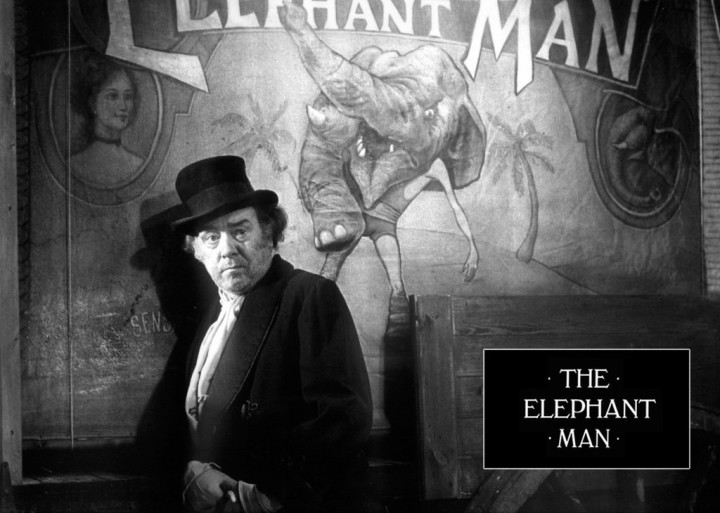
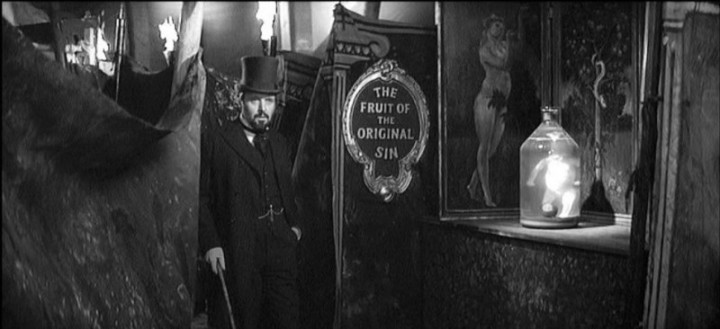
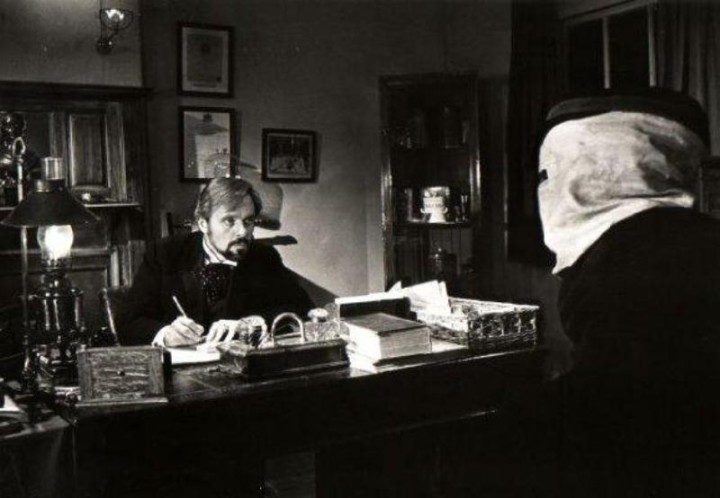
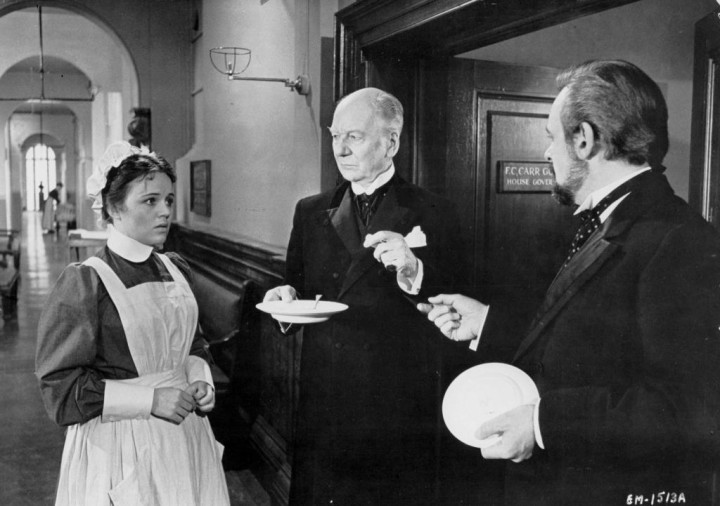
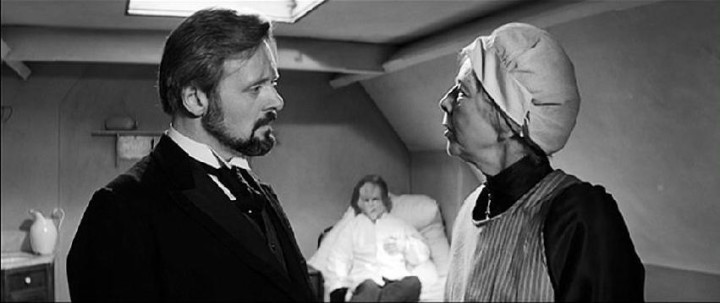

Before you comment
The comments section is here to provide a platform for civil dialogue on the issues we face together as a local community. Xpress is committed to offering this platform for all voices, but when the tone of the discussion gets nasty or strays off topic, we believe many people choose not to participate. Xpress editors are determined to moderate comments to ensure a constructive interchange is maintained. All comments judged not to be in keeping with the spirit of civil discourse will be removed and repeat violators will be banned. See here for our terms of service. Thank you for being part of this effort to promote respectful discussion.